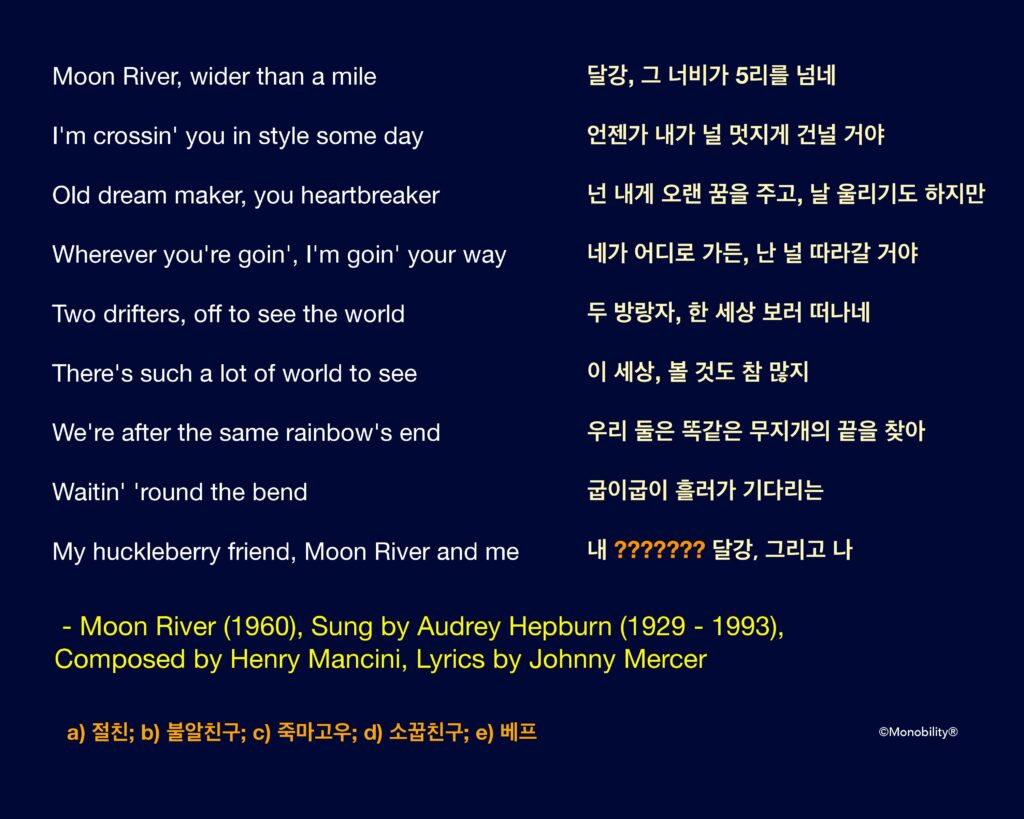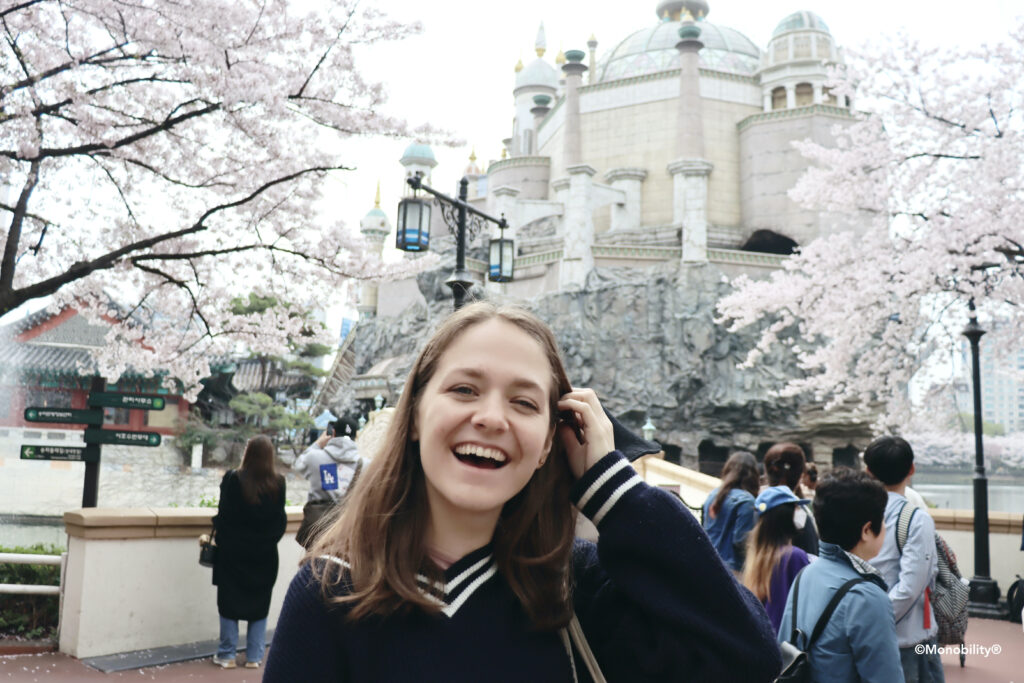How is localization different from translation? For me, it’s simple. Localization is mostly for monolinguals who can’t or don’t want to use computers to research on the subject matter. So your job as a translator becomes much easier.
Localization is a sociolinguistic transformation process to adapt and customize a content’s full meaning for a specific region, country, or market. As opposed to translation, you must assume that your audience for localization doesn’t know anything about the original language and culture of the content, like for example, a grandpa or a grandma who doesn’t speak one word of English. Localizing song lyrics or marketing materials, you have more freedom than translating them. For example, the Korean word order sometimes doesn’t allow a translator to stay within a line written in English, due to the mismatch of subordinate clauses or phrases:
We’re after the same rainbow’s end 우리는 같은 무지개의 끝을 찾아요
Waitin’ ’round the bend 그것은 강이 굽이치는 곳에서 우릴 기다리고 있어요
My huckleberry friend, Moon River and me 내 ‘허클베리’ 친구, 달의 강과 나
The above strophe shows that the second line, a present participle phrase with “waiting” that modifies the preceding “rainbow’s end”, can not be translated into Korean on the same line due to the word order difference between the two languages. Korean modifies what follows, while English modifies what precedes. Trying to force the Korean sentence to be on the same line, you often end up with a lengthy, boring translation inappropriate for the genre of poetry or song lyrics.
When you localize, however, you are free to use your imagination and rephrase the whole sentences, as long as the resulting figment of your imagination still conveys the essence of the original, including its sentiment, mood, and atmosphere. By rewriting the above example from a slightly different perspective, you can achieve that goal without disrupting the line-by-line correspondence:
우리 둘은 똑같은 무지개의 끝을 찾아 The two of us are after the same rainbow’s end,
굽이굽이 흘러가 기다리는 who flow along the winding paths and wait;
내 ‘허클베리’ 친구, 달강, 그리고 나 My huckleberry friend, Mood River and me

Level A1: The song’s title, Moon River, can be directly localized in Korean, since it is not a proper noun, i.e., a name of a real river, at least when this song was written. What are the Korean words for “the moon,” and “river”?
Level C2: At 1:19, Audrey Hepburn calls the river “my huckleberry friend.” Although nowadays it is not a common way of calling a best friend or a childhood friend, you might remember Adventures of Huckleberry Finn, or The Adventures of Tom Sawyer by Mark Twain (1835 – 1910), where the word “huckleberry” evokes an innocent and carefree childhood friendship like the one between Tom Sawyer and Huckleberry Finn. How would you localize it into Korean for this song’s lyrics, considering its sentiment, style, and who sings it? Please select one from the following Korean words for “best friend” or “friend from childhood”:
a) 절친
b) 불알친구
c) 죽마고우
d) 소꿉친구
e) 베프
Monobility® Group



